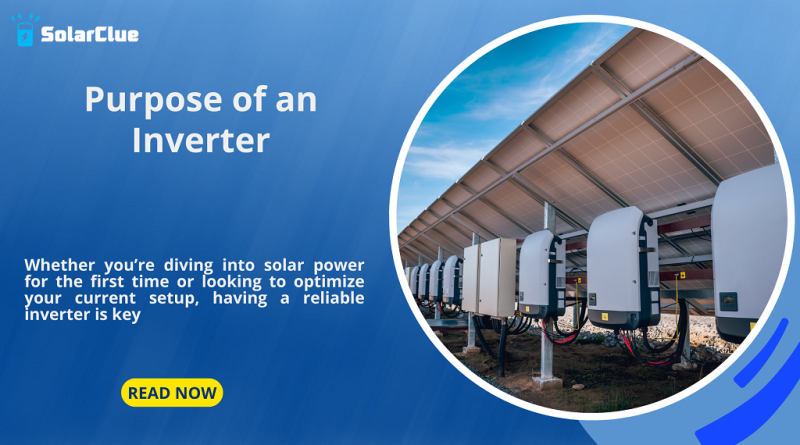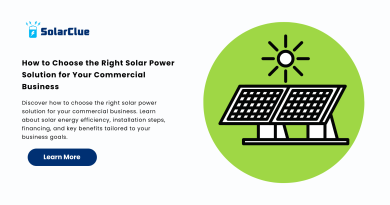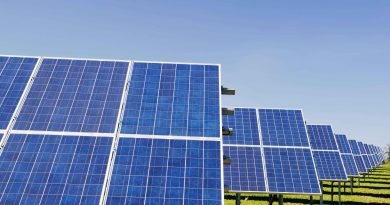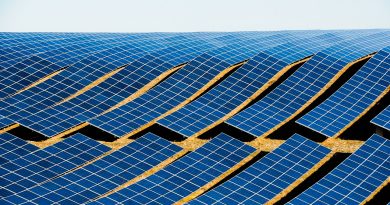Purpose of an Inverter
When it comes to setting up a solar power system or even just upgrading your home’s electrical system, you might come across the term “inverter.” For many, the idea of an inverter can be a bit confusing. It’s one of those technical components that’s crucial to the whole setup but doesn’t always get the spotlight it deserves. In this blog post, we’re going to break down the purpose of an inverter in simple terms, and why it’s such an important piece of the puzzle in both solar and electrical systems.
Table of Contents
What Is an Inverter?
To put it simply, an inverter is a device that converts one type of electrical current into another. Specifically, it converts direct current (DC) into alternating current (AC). This may sound like a small detail, but it’s fundamental to how most of our modern electrical systems work.
Direct Current vs. Alternating Current
Before we dive into the specifics, let’s clarify the difference between direct current (DC) and alternating current (AC):
- Direct Current (DC): This is the type of electricity that flows in a single direction. Batteries and solar panels produce DC power. It’s a steady and consistent flow of electricity.
- Alternating Current (AC): This is the type of electricity that flows back and forth. Most household appliances, from your refrigerator to your TV, use AC power because it’s more efficient for transporting electricity over long distances.
Why Do You Need an Inverter?
The main purpose of an inverter is to make sure that the DC power generated by certain sources (like solar panels or batteries) can be used by your home’s AC appliances.
Here’s a simple analogy: Imagine you have a water pump that only works with a specific type of water flow. If you want to use it with a different type of flow, you need an adapter. In this case, the inverter is that adapter, converting the “flow” of electricity from DC to AC so that your home’s appliances can use it.
How Does an Inverter Work?
Let’s break down how an inverter performs this conversion:
1.Receiving DC Power: An inverter receives direct current (DC) electricity from a source, such as solar panels or batteries.
2.Conversion Process: Inside the inverter, there are electronic components that change the DC electricity into alternating current (AC). This involves creating a fluctuating signal that matches the AC power used by home appliances.
3.Output to Home: Once converted, the AC electricity is sent to your home’s electrical system, where it powers your appliances and lights.
4.Monitoring and Control: Many modern inverters come with monitoring features that provide data on energy production and system performance. This helps in ensuring that the system operates efficiently.
Why Is the Purpose of an Inverter So Important?
Here’s why the inverter’s role is crucial in both solar and electrical systems:
1.Compatibility: Most homes and appliances run on AC power. Without an inverter, you couldn’t use the DC power generated by solar panels or stored in batteries.
2.Efficiency: High-quality inverters are designed to convert DC power into AC power with minimal energy loss. This ensures that you get the most out of the energy generated.
3.System Integration: Inverters often come with additional features like energy monitoring and control systems, which help in managing the energy flow and optimizing performance.
4.Grid Connection: If you’re connected to the electrical grid, the inverter ensures that the power from your solar panels is synchronized with the grid’s AC power, which is essential for safety and efficiency.
Key Features of Modern Inverters
To give you a clearer understanding, here’s a table summarizing some of the key features of modern inverters:
| Feature | Description |
|---|---|
| Efficiency | High conversion efficiency to minimize energy loss. |
| Monitoring | Real-time data on energy production and system performance. |
| Durability | Built to withstand various environmental conditions. |
| Grid Integration | Synchronizes with the electrical grid for safe and efficient operation. |
| Advanced Control | Features like remote access and automated adjustments. |
Choosing the Right Inverter for Your Needs
Selecting the right inverter depends on several factors:
1.System Size: Make sure the inverter is compatible with the size of your solar panel system or battery bank.
2.Energy Requirements: Consider the amount of power you need and choose an inverter that can handle it efficiently.
3.Budget: While higher-quality inverters may cost more, they often offer better efficiency and features that can save you money in the long run.
4.Installation and Maintenance: Professional installation is recommended to ensure the inverter operates correctly. Regular maintenance will help in extending its lifespan.
Conclusion
Understanding the purpose of an inverter can make a big difference when setting up or upgrading your solar power system. This device plays a critical role in converting the DC power generated by your solar panels or stored in your batteries into AC power that your home can use. By making this conversion, the inverter ensures that your energy system is compatible with your home’s electrical needs and operates efficiently.
Whether you’re diving into solar power for the first time or looking to optimize your current setup, having a reliable inverter is key. It’s the unsung hero of your energy system, quietly working behind the scenes to keep everything running smoothly. So, the next time you hear about inverters, you’ll know exactly why they’re so important and how they help in powering your home.
Visit SolarClue® to see the best Solar Inverters. SolarClue® actively sells solar energy products at discounts of up to 50% on its online marketplace.
FAQ
1. What is the lifespan of an inverter?
Most inverters last between 5 to 10 years, depending on usage and maintenance. Regular servicing can help extend its life.
2. Can I use an inverter with any solar panel system?
Inverters are generally compatible with most solar panel systems, but it’s best to check the specifications to ensure compatibility.
3. How often should I check my inverter?
Regular checks are recommended, ideally every few months. Ensure the inverter is clean and free from any obstructions or signs of damage.
4. Can an inverter be repaired?
Yes, many issues can be repaired. However, sometimes it’s more cost-effective to replace an old or malfunctioning inverter with a new one.
5. Do I need a special inverter for a home solar system?
While standard inverters work for most home solar systems, specific features might be needed based on your system’s size and requirements. Consult with a professional to determine the best fit.




